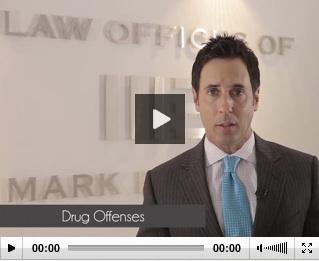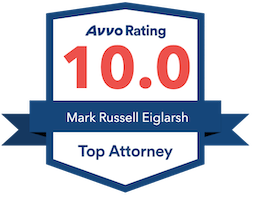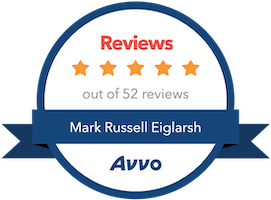Drug Crimes – Terms

- Miami Drug Crimes Lawyer
- Cultivation
In Florida, growing, possessing, or producing plants and other natural substances for sale or private use that can be used to produce unlawful controlled substances is considered drug cultivation. In addition, the manufacturing of illegal controlled substances that needs laboratory equipment and chemicals to produce is also considered drug cultivation. If you are found cultivating controlled substances, such as marijuana or methamphetamine, you can expect to face arduous prosecution and several penalties upon conviction. Drug cultivation charges are far more serious than simple drug possession charges. If you or a loved one is charged with drug cultivation, call the law offices of Mark Eiglarsh immediately. Our firm is committed to providing our clients with excellent representation throughout the criminal process. Please contact us day or night for a free and confidential consultation.
Distribution
It is a crime in the state of Florida to intentionally distribute illegal controlled substances such as cannabis, methamphetamine, crack cocaine, cocaine, MDMA, LSD, and heroin. The distribution of illegal drugs is a federal and state crime that can result in severe penalties. In addition, repeat offenders could face stricter sentences if found guilty. Because state and federal drug laws are different from each other, it is imperative that you have an experienced Miami drug offense attorney who is well versed in this particular crime.
At the law offices of Mark Eiglarsh, our firm is fully committed to providing each and every client with an aggressive defense at all phases of the criminal process. The most prudent thing to do is call the law offices of Mark Eiglarsh to speak with an experienced Miami drug offense attorney, who has over two decades of experience, about your situation.
Manufacturing
In Florida, drug manufacturing is defined as the crime of intentionally creating or producing an illegal controlled substance through a chemical process. Generally, drug manufacturing is punishable by penalties, incarceration, probation, community service, and mandatory drug treatment. The severity of such penalties will depend on the quantity of drugs manufactured, the kind of drugs manufactured, and whether a minor was involved to aid with the manufacturing procedure.
If you or a loved one have been charged with drug manufacturing, it’s imperative that you speak with an experienced Miami criminal defense attorney immediately. Drug manufacturing is a serious offence, and punishable by a prison sentence and fines. Moreover, if you are charged with this crime, the police could raid your property in search of evidence. Having a highly skilled Miami drug manufacturing defense lawyer from the law offices of Mark Eiglarsh working on your behalf will ensure you have the protection you need against the prosecution!
Possession
According to Florida state law, it is unlawful for any person to sell, manufacture, deliver, or purchase a controlled substance. In addition, § 893.03, Fla. Stat. (2012) has categorized both illegal and prescription drugs into Schedule I to Schedule V. As a rule of thumb, a schedule I drugs typically have the most severe penalties, and Schedule V drugs have minimal penalty. For example:
- Schedule I drugs have a high potential for abuse and no recognized medical use in the U.S. Cannabis and morphine is considered a Schedule I.
- Schedule II drugs have an elevated potential for abuse and limited acknowledged medical use in the U.S. OxyContin, Vicodin, Dexedrine, Ritalin, and Hydrocodone are considered Schedule II.
- Schedule III drugs are considered to have a less severe likelihood for abuse compared to Schedule I or II drugs, and have acknowledged medical use in the U.S. Codeine is an example of a Schedule III drug.
- Schedule IV drugs have a lower probability for abuse than Schedule III drugs and are acknowledged with accepted medical uses in the U.S. Xanax, Ambien, and Klonopin are examples of Schedule IV drugs.
- Schedule V drugs have the lowest probability for abuse compared to Schedule I, II, III, and IV drugs and have acknowledged medical uses in the U.S. Robitussin is considered a Schedule V drug.
It is a felony of the first degree to sell, deliver, or purchase in excess of 10 grams of any substance named or described in Schedules I(a) or I(b), such as Clonitazene, Codeine methyl bromide, Morphine and heroine, or any mixture containing any such substance. It is a felony of the second degree to sell, deliver, or purchase a substance named or described as a Schedule I or II drug, such as Cannabis, Codeine, raw opium, Methaqualone, Allylprodine, or Pholcodine. In addition, it is a felony of the third degree to sell, deliver, or purchase certain controlled substances listed in Schedules I, II, III, and IV, and it is a misdemeanor of the first degree to sell, deliver, or purchase certain controlled substances listed in Schedule V. In Florida, you can be charged with possession of a controlled substance as either actual (direct control over the illegal drug or prescription drug) or constructive possession (aware that the drugs were illegal, or aware the illegal substance was in their presence). If you or a loved one is charged with possession, call the law offices of Mark Eiglarsh at your earliest convenience to learn about your rights and the defenses that may be available to you.
Trafficking
Drug Trafficking is defined as the procurement and sale of illegal drugs, or the manufacture, distribution or importation of illegal drugs across state or national borders. Drug trafficking can be either a state of federal offense, and each carry severe sentences with imprisonment and/or fines. County and state law enforcement and government officials frequently handle trafficking offenses, however if the case involves enormous quantities of drugs or international trafficking, then it could be a federal offense, which will involve the Drug Enforcement Administration (DEA) and the Federal Bureau of Investigation (FBI). To illustrate, 25 pounds of cannabis is a first-degree felony punishable by up to 15 years in prison and a $10,000 fine, and 10,000 pounds of cannabis will result in a minimum 15 years prison sentence plus a $200,000 fine. Drug trafficking can also be a capital felony, which is punishable by a life sentence or death, if the offender deliberately kills an individual, or if the offender initiated the killing while trafficking drugs.
If you or a loved one is charged with drug trafficking, call the law offices of Mark Eiglarsh at your earliest convenience to learn about your rights and the defenses that may be available to you. A skilled Miami criminal defense attorney from the Law Offices of Mark Eiglarsh can provide you with the representation that you need to effectively defend your legal rights!








